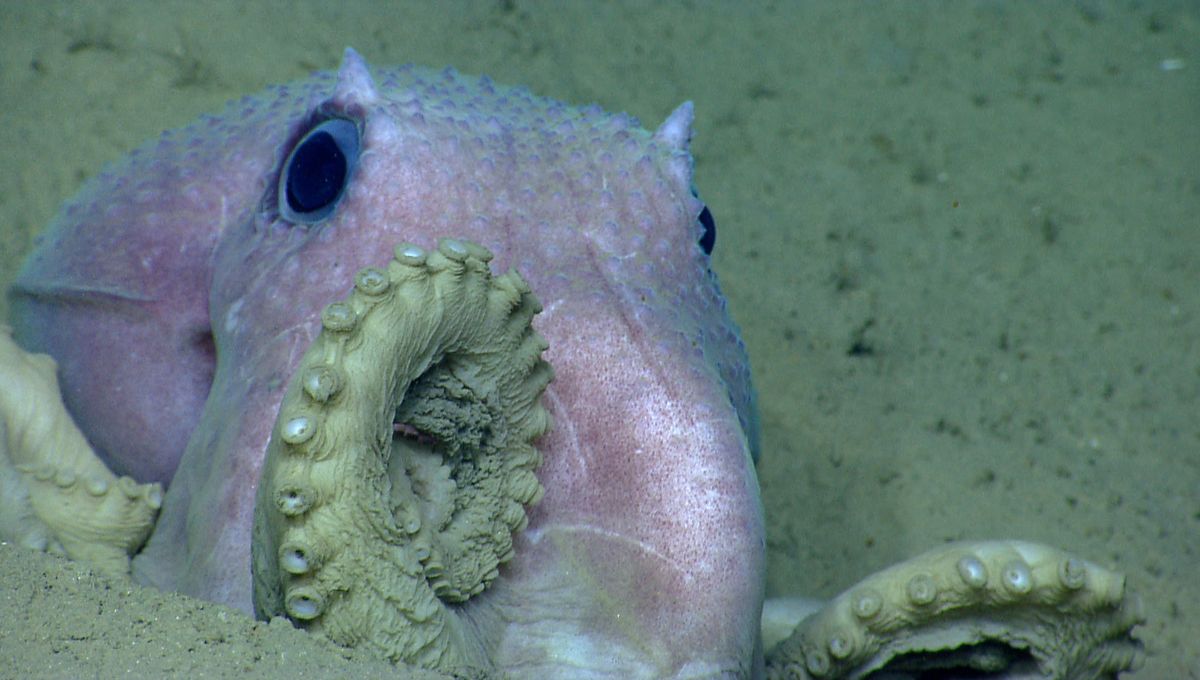
Welcome to the wonderful world of animal grammar. From collective nouns to naming a new species, the wacky world of wildlife nomenclature sure loves to keep us on our toes. Whether the name has a Latin or Greek root or something else entirely, we break down what is the acceptable plural for one of the most hotly debated, everyone’s favorite cephalopod: the octopus. Is it octopi, octopuses, or even octopodes?
Part of the confusion around the word octopus is that it comes from the Latinized form of the Greek word októpus, which means “eight foot”. Scientists in the 1700s borrowed the word and Latinized it, as was the trend for naming and categorizing species then. The debate as to whether the plural should nod to its Greek or Latin roots was raging as far back as 1873, when the Bradford Observer published a section called Octopus Philology, according to Merriam-Webster.
“But as the Octopus grew and multiplied, it became necessary to speak of him in the plural; and here a whole host of difficulties arose. Some daring spirits with little Latin and less Greek, rushed upon octopi; as for octopuses, a man would as soon think of swallowing one of the animals thus described as pronounce such a word at a respectable tea table. In this condition of affairs, we are glad to know that a few resolute people have begun to talk about Octopods, which is, of course, the nearest English approach to the proper plural.”
This throws a fourth option into the mix but unfortunately for the Bradford Observer “octopods” never quite caught on. The other three, however, are the center of the debate.
Octopi
Octopi is the oldest known version of the word. If we stick to the idea that Latin words should have Latin endings then you can see where people get the idea of “octopi” from. In a similar way, the Latin word bacteria becomes the plural bacterium. But, as the word octopus is a Latinized form of a Greek word, and never existed in its own form in the Latin language, it’s not strictly correct. However, while it may not have an etymological basis, it is old enough and common enough to be widely accepted.
Octopodes
If we were to pluralize the original Greek root the logical answer would be octopodes. While this is technically the most grammatically correct it is also the most pedantic and the least often used.
“Octopodes stems from the belief that because octopus is originally Greek, it should have a Greek ending,” says Merriam-Webster.
Octopuses
And so to English. Since we’ve adopted the word octopus as a noun into fairly common usage in the English language, when we give it an English ending we get the word “octopuses”. This is the one most commonly accepted and used, and the plural version you’ll find used by NOAA, the Ocean Conservancy, and in IFLScience articles.
So, what is the plural of octopus?
So which one should you use? Well, it depends on how pedantic you’re feeling on the day but if in doubt stick to “octopuses”. It’s worth remembering though, that most taxonomic names are invented versions of “Latin” or “Greek” words.
In 1753, Carl Linnaeus, the “father of taxonomy”, chose Latin for binomial nomenclature because it is a dead language and didn’t favor any living people or nation. If there wasn’t a Latin word for something, scientists turned to Greek, and over time have Latinized, Anglicized, and generally bastardized ancient words. This means there is quite a lot of leeway in how strictly scientific names adhere to etymological origins.
While we’re on octopuses, this also applies to the pronunciation of species whose names come from languages not spoken in centuries. If we stuck to the strict Greek or Latin origin of cephalopod, we should all be pronouncing it “kephalopod” not “sephalopod” as there was no soft “c” in either language.
Source Link: Octopi, Octopodes Or Octopuses? What's The Correct Plural For Octopus?